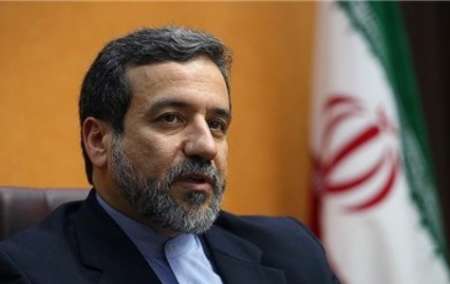Iranian Deputy Foreign Minister and senior negotiator Sayyed Abbas Araqchi underscored that the feud between the US administration and the Congress will have no impact on the negotiations between Tehran and the six world powers.
 Iranian Deputy Foreign Minister and senior negotiator Sayyed Abbas Araqchi underscored that the feud between the US administration and the Congress will have no impact on the negotiations between Tehran and the six world powers.
Iranian Deputy Foreign Minister and senior negotiator Sayyed Abbas Araqchi underscored that the feud between the US administration and the Congress will have no impact on the negotiations between Tehran and the six world powers.
"We are negotiating with the US administration within the framework of multilateral talks (with the Group 5+1 - the US, Russia, China, Britain and France plus Germany). We are negotiating with 6 countries and the approvals of a country's Congress cannot distort the process (of the talks)," Araqchi told reporters in Tehran on Monday.
He, meantime, cautioned that the US Congress moves are opposed to the principles of good will, and said, "We assume the US administration as to be responsible for the undertakings that it will accept in a possible agreement and it should implement them and they, themselves, should settle their problems with the Congress domestically."
His remarks came after a bipartisan bill was presented to the Congress for vote, following the April 2 nuclear statement by Iran and the G5+1 in the Swiss city of Lausanne, that would give the US legislature oversight of a final deal, a move seen by many across the globe, including both Iran and the US, as furthering impediments to the endorsement of a final deal between Iran and the sextet.
Araqchi also elaborated on Iran's continued nuclear Research and Development (R&D), and said the IR8 centrifuges which are considered as ideal machines for enrichment by Iran need to undergo a long R&D process before they could be mass produced in 8 to 10 years from now.
"With the present perspective in the negotiations, the restrictions on (Iran's nuclear fuel) production will end after 10 years and our R&D will also complete (then); and we will develop the capacity for 1,000,000 SWUs (Separative Work Units) enrichment in 2 to 5 years (after that)," he added.
In relevant remarks on April 8, Head of the Iranian parliament's Nuclear Committee Ebrahim Karkhaneyee stressed that Tehran should include in the final deal with powers its right of using the hi-tech IR8 centrifuge machines for the time when the nuclear fuel supply contract with Russia expires.
Based on the Lausanne statement, Iran is allowed to use the first generation of centrifuges, and considering that Iran will have only 5,000 centrifuges in Natanz, it will not be able to produce fuel for the Bushehr nuclear power plant, Karkhaneyee told FNA, and added, "The negotiators should include use of the 8th generation of centrifuges (IR8) in the final agreement."
"Accordingly, using the centrifuges should be arranged in a way that will enable the Islamic Republic of Iran to have the 190,000 SWUs for enrichment after the end of its contract with Russia (which has built Bushehr nuclear power plant and is due to supply its fuel for some years)," he added.
Kharkhaneyee stressed that the final deal should be written in a way that it would include Iran's Research and Development plan (R&D) explicitly so that after the end of Iran-Russia contract, the IR8 centrifuges would enter the fuel production cycle immediately and Iran can produce its own nuclear fuel.